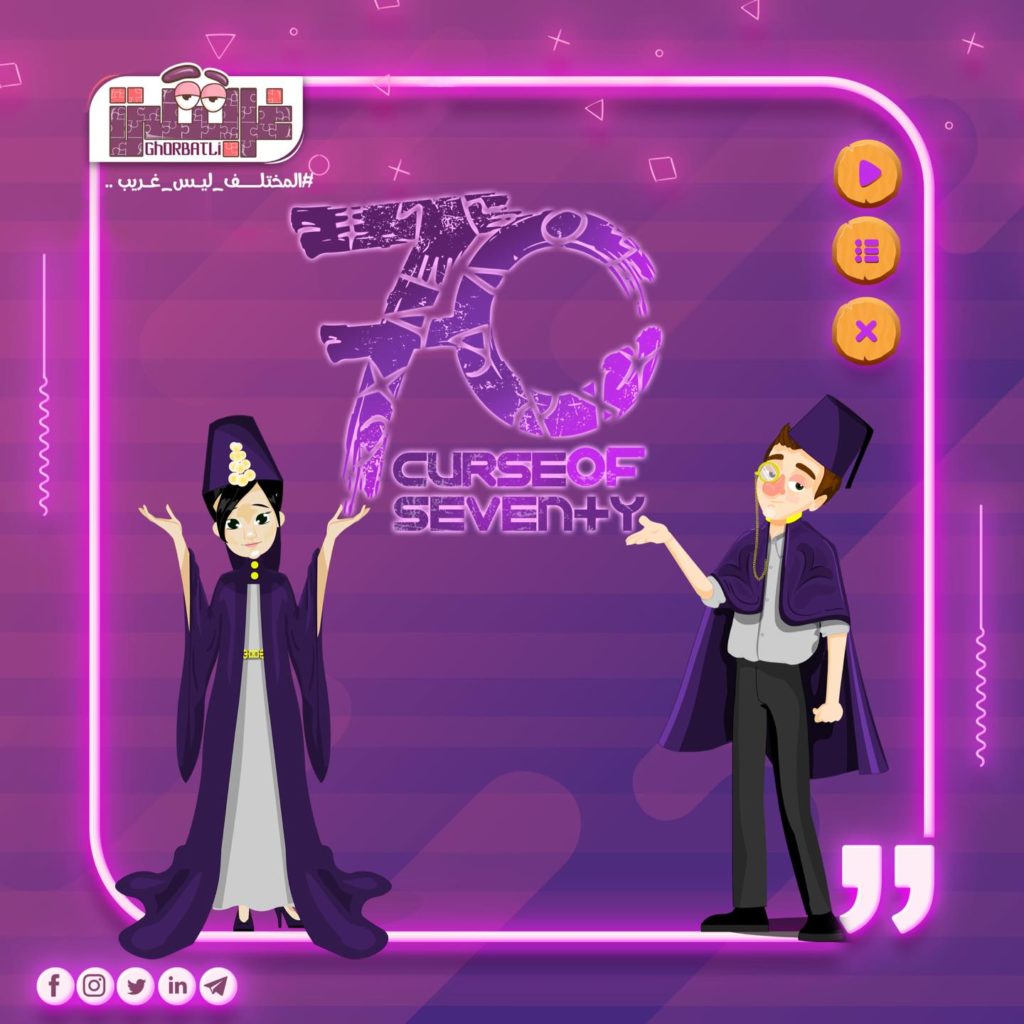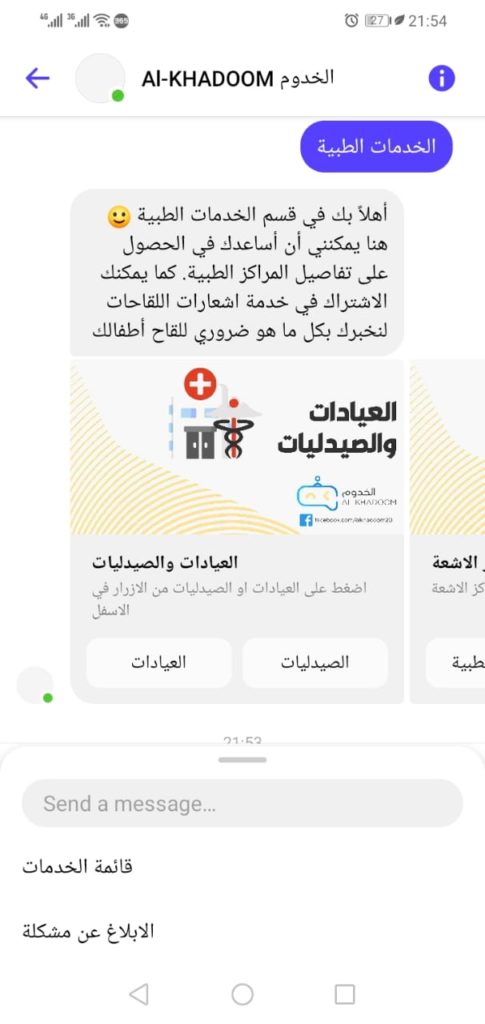Syria Digital Steps Fellows 2019 – 2020
In 2019, we received 156 applications to the Digital Steps Syria program. In June 2019, we brought together 10 shortlisted teams for a pre-selection workshop. Over five days, we introduced teams to examples of innovative initiatives from around the world, taking them through a rigorous human- centered design process to refine their original ideas. Based on the pre-selection workshop, we selected 7 outstanding local initiatives from across Syria.
These seven initiatives are worked on a diverse set of projects to build social cohesion inside Syria. Their projects ranged from a participatory video project to empower women to tell their own stories, to a game to encourage reflections on diversity, a Messenger chatbot that connects people with services, and a Facebook campaign to raise awareness around rumors. Teams also worked on a video campaign to encourage critical thinking among youth and children, and an e-learning platform to bring people together through art skills.
Voice Up
Voice Up is a youth empowerment initiative focused on video-making encouraging youth to speak up about problems they face.
In the Digital Steps program, two young people with an idea of a social media campaign to initiate a conversation with youth and encourage them to advocate for their needs. They started by holding a workshop with 20 youth where they provided a safe space for them to talk about their issues, while also learning how to make videos!
The training focused on promoting critical thinking skills through discussions, practicing on how to distinguish opinions from facts, analyzing problems in society and constructively criticizing outdated customs and stereotypes.
Together with the participants, they produced 4 films that promote a message of peace; the videos were published on a Facebook group, where participants got to discuss the issues mentioned in the videos and what role they can play in solving them. Voice Up’s public page on Facebook reached 1121 followers, where they ran many campaigns empowering more youth to speak up and talk about their issues. Some of these creative campaigns included talent shows, showcasing stories of young changemakers, and many discussions tackling youth problems and common stereotypes.
The Voice Up team concluded their pilot, and are now planning to run similar campaigns in other cities, and expand their work in a sustainable way.
Filmmaking skills for children
One team wanted to work on an idea of a training program to encourage children to express themselves peacefully through film-making workshops. The team held 3 workshops for kids, these workshops consisted of interactive exercises with the aim of empowering kids to express themselves by non-violent means, through content creation and video making skill development.
Due to the lockdown which followed the covid 19 pandemic the team decided to launch a facebook group to stay in contact with the community. The group was created for children and their parents, and they used it to facilitate a number of activities and challenges keeping the children engaged and providing mental support during the lockdown period. At the end of the program, a number of those kids created their own videos, then shared it and discussed it over the FB group.
The team is now in the process of finding a permanent location to continue their activities, reach out to more children and conduct workshops.
Rumour verification locally
Another team came in with the idea of tackling rumors on Facebook that are spreading within their community. They started by reaching out to 40 individuals in their local community, and trained them on rumor management and media literacy. Later on, some of those trainees with the help of the team created a core group called “the verification group”, in order to work together on a campaign towards rumor management in Sweida.
They started mobilizing around their Facebook page “Qil-an-Qal” with a clear key message “Think before you share”. Through this page, they shared their awareness videos around rumor management, and published a number of posts with credible facts around the corona virus and the government response where a lot of rumors were being spread.
the core group held a planning workshop, where they organized their tasks and duties, and agreed upon a process for news verification, in preparation for the launch of a fact-checking chatbot on Facebook. The chatbot and the internal process have been developed and tested during the fellowship, and now the team is getting ready for its launch.
Gharbatli
Two enthusiastic college graduates from Syria joined the program with the idea of creating games for change. They called their team Gharbatli, and started working on a video game that tackles stereotypes by encouraging youth around Syria to think about their behaviours towards the other. The game “the Curse of the Seventy” uses interactive storytelling to take the user through a journey where they take actions and face consequences, inviting users to reflect on their behaviours and the decisions they made during the game. Through the Digital Steps program, the team designed, tested and launched their first game. By the end of the program period, the game was played by 251 people, 90% of them completed the whole path. In a post survey, one user who played the game said: “….final evaluation of my behavior [in the game] that was wrong without realizing it, and it made me reconsider and evaluate my behavior in real life”
Gharbatli also created a Facebook page in preparation for launching the game, and got 3692 followers. Now, the team is working on some fixes and edits on their first game, and have already developed a concept for their upcoming game/story under the name “The Big Reveal”

Participatory Video
An organization working in Syria has conducted a participatory video project in rural Damascus to empower women and explore how conflict affects them and changes the perception of women in local communities.
In three different areas in rural Damascus, women participants were trained on filmmaking and storytelling skills, then they filmed a number of stories around the change in gender roles during the war. One video was edited and published on Facebook, the video was telling a story of a woman who had to work and raise children alone, and her struggle to claim her rights under the oppressive laws after being divorced.
The team is now working now on editing and publishing other stories that they filmed after the workshop, they are also fundraising to replicate this project in new cities/areas.

AlKhadoum – SMART Centre
Al-Khadoum “Arabic: the obliging” is a messenger chatbot that connects people to health services in the city of Qamishli. The chatbot connects to 422 service providers (medical clinics, labs, pharmacies…etc), it also has a health awareness section responding to the COVID-19 pandemic, it provides credible information about the virus, how it can spread, emergency numbers in Qamishli, as well as tips about managing anxiety during the pandemic.
During the Digital Steps program, the team conducted a human-centered process in designing their product, they started with collecting data from potential users to ascertain key needs and shape the design of the chatbot, then they developed and tested a first (Alpha) version with the initial users. Building on the users’ feedback, and encompassing other data they’ve collected, the team released their BETA version and tested it with 104 users where 99% of the users said they would recommend the bot to others, and 94% said they would use it again themselves.
The team is now preparing for the public launch, with one more feature to be incorporated into the chatbot, where people can share stories about helping each other, and the chatbot will share those stories among people, demonstrating that it’s not only the bot who’s helping, but there are always people helping each other everyday.

